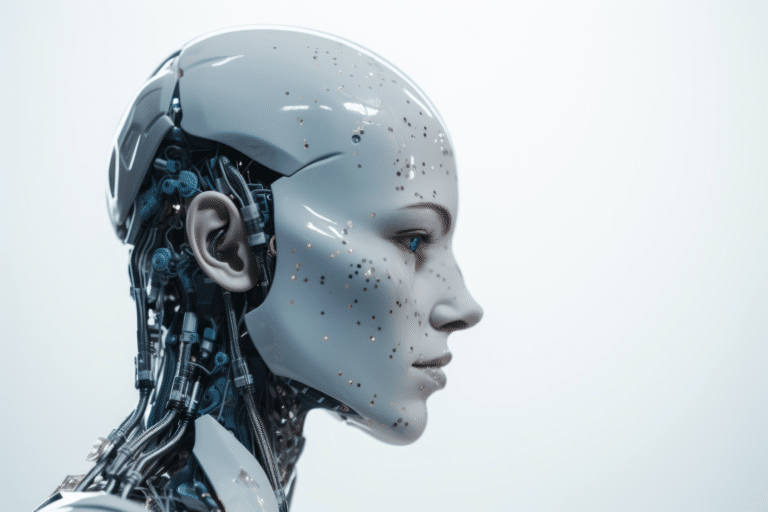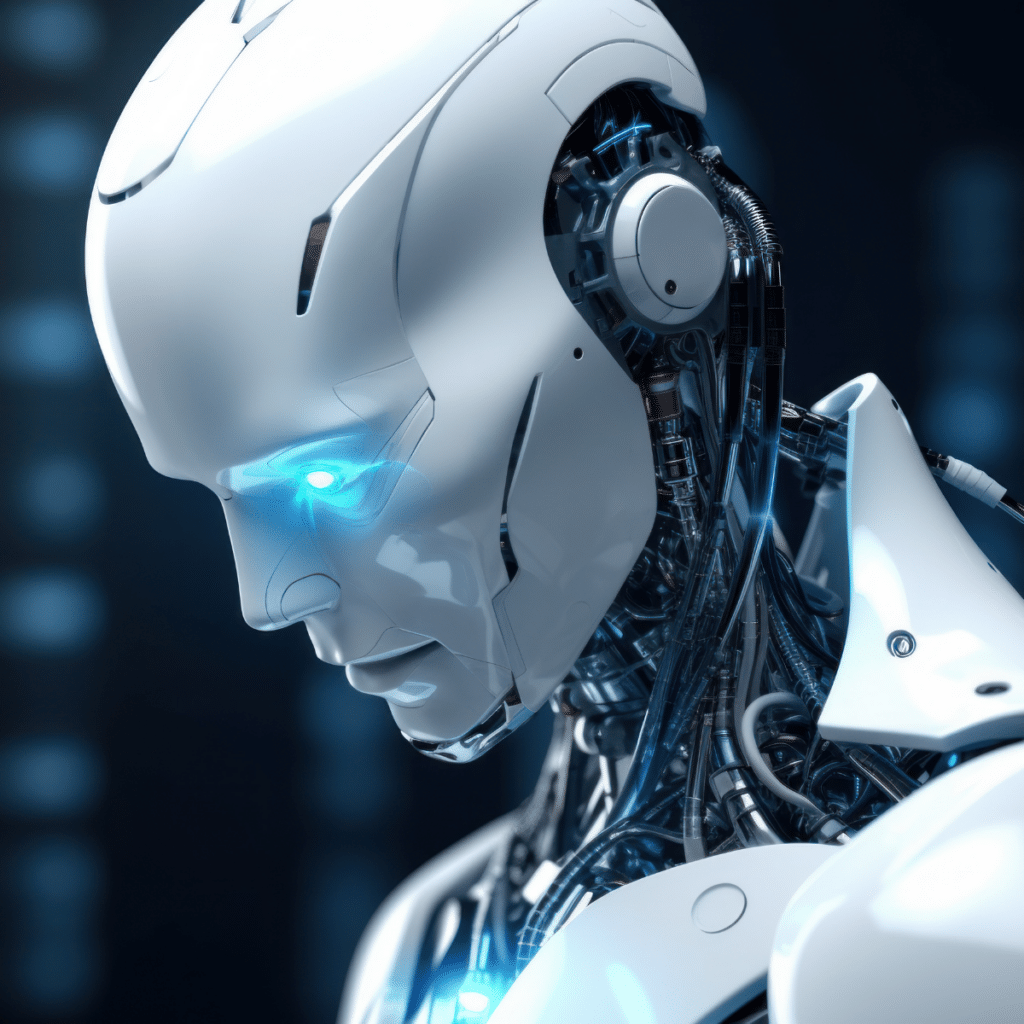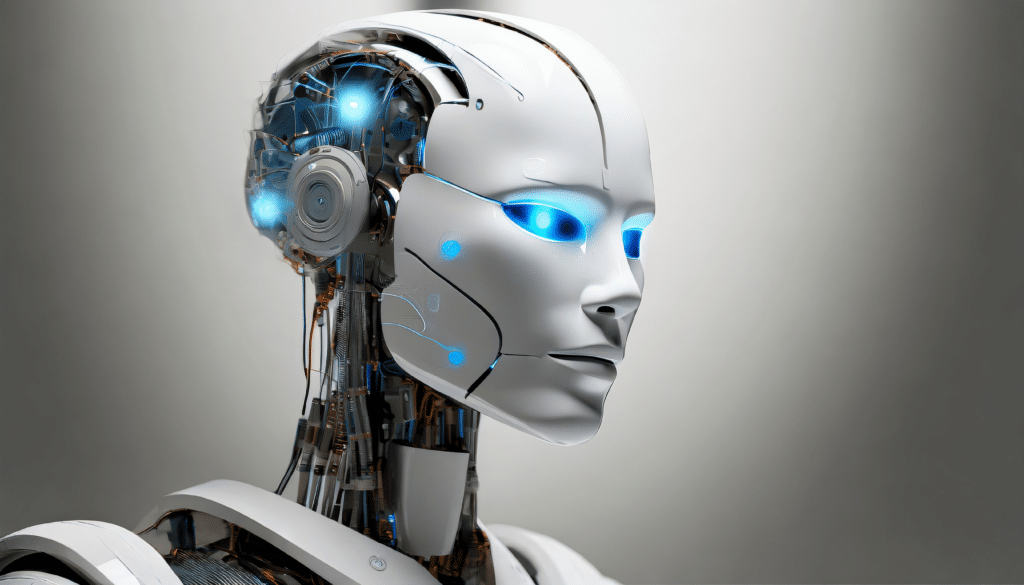Introduction to Artificial Intelligence
Artificial Intelligence (AI) refers to the simulation of human intelligence in machines that are programmed to think, learn, and solve problems. AI encompasses a wide range of technologies, including machine learning, neural networks, and natural language processing. The concept of AI dates back to the mid-20th century when scientists first began exploring ways to create intelligent machines, with notable milestones such as the development of early neural networks and the Turing Test.
The importance of AI has grown exponentially, impacting industries from healthcare and finance to manufacturing and retail. AI-powered applications, such as virtual assistants, autonomous vehicles, and predictive analytics, are transforming how businesses operate and how individuals interact with technology. By automating tasks and enhancing decision-making, AI helps improve efficiency, reduce human error, and unlock new possibilities for innovation.
Explore the potential of AI to revolutionize industries and reshape the future.
Types of Artificial Intelligence
Artificial Intelligence (AI) can be classified into three main types: Narrow AI, General AI, and Superintelligence. Narrow AI, also known as Weak AI, is designed to perform specific tasks such as voice recognition, recommendation systems, or image classification. It operates within a predefined scope and lacks the ability to perform beyond its programmed functions.
General AI, or Strong AI, refers to systems that possess the ability to understand, learn, and apply knowledge across a wide range of tasks, much like human intelligence. While General AI remains theoretical, it represents the ultimate goal for many researchers in the AI field.
Superintelligence goes even further, surpassing human intelligence in every aspect. This form of AI would be capable of solving complex problems, learning at an exponential rate, and possibly reshaping society as we know it. Although it’s still a futuristic concept, discussions about its potential implications are already ongoing.
Key Concepts in AI
Artificial Intelligence (AI) encompasses several important concepts that drive its development and applications. Machine Learning is one of the core technologies, enabling systems to learn from data and improve performance over time without being explicitly programmed. It powers applications like recommendation engines, fraud detection, and predictive analytics.
Neural Networks are a subset of machine learning inspired by the structure of the human brain. These networks consist of interconnected layers of nodes, or „neurons,“ that process and analyze complex patterns in data, making them ideal for tasks such as image recognition and speech processing.
Deep Learning builds on neural networks, using multiple layers to handle vast amounts of unstructured data. It has revolutionized AI in fields like autonomous driving and medical diagnosis.
Natural Language Processing (NLP) focuses on the interaction between computers and human language, enabling machines to understand, interpret, and generate text. NLP is fundamental for chatbots, virtual assistants, and translation services.
AI Algorithms and Techniques
Artificial Intelligence (AI) relies on various algorithms and techniques to process data and make decisions. Supervised Learning is one of the most common approaches, where the AI is trained on labeled datasets, learning from correct input-output pairs. It’s widely used in tasks like image classification, spam detection, and speech recognition.
Unsupervised Learning deals with unlabeled data, where the AI must find patterns and relationships on its own. This technique is valuable for clustering, anomaly detection, and customer segmentation.
Reinforcement Learning allows AI systems to learn by interacting with their environment. By receiving rewards or penalties based on their actions, the system gradually improves its decision-making process. It’s commonly applied in robotics, game playing, and autonomous vehicles.
Evolutionary Algorithms are inspired by natural selection, where AI models evolve over time by generating multiple solutions and selecting the most optimal ones. This technique is useful for optimization problems in fields like engineering and logistics.
AI in Industry
Artificial Intelligence (AI) is transforming industries by enhancing efficiency, accuracy, and decision-making. In Healthcare, AI powers tools for medical diagnosis, drug discovery, and personalized treatments. AI-driven algorithms can analyze medical data faster and more accurately than humans, improving patient outcomes and reducing healthcare costs.
In Finance, AI automates trading, detects fraud, and personalizes financial advice. By processing vast amounts of data in real-time, AI helps financial institutions make smarter investment decisions, enhance security, and improve customer service through chatbots and robo-advisors.
Manufacturing benefits from AI in the form of predictive maintenance, quality control, and supply chain optimization. AI-driven robots and systems can detect defects, prevent equipment failures, and streamline production processes, reducing downtime and increasing productivity.
In Retail, AI enhances the customer experience with personalized recommendations, demand forecasting, and automated customer service. AI-powered analytics enable retailers to optimize inventory, boost sales, and offer tailored shopping experiences.
Ethics and Challenges in AI
As Artificial Intelligence (AI) advances, it raises significant ethical and societal challenges. Bias and Fairness are critical issues, as AI systems can inadvertently perpetuate discrimination if trained on biased data. Ensuring fairness in AI algorithms is essential to avoid unequal treatment in areas like hiring, law enforcement, and healthcare.
Data Privacy Concerns arise from AI’s reliance on large datasets. Personal data collected for AI training can be misused, leading to privacy violations and unauthorized surveillance. Protecting user data and ensuring transparency in AI processes are key to maintaining trust.
Autonomous Weapons pose a serious ethical dilemma, as AI could be used to create autonomous systems capable of making life-or-death decisions without human intervention. This raises concerns about accountability and the potential for misuse in warfare.
AI and Unemployment is another challenge, as automation threatens to replace jobs in industries like manufacturing and customer service. Addressing the social and economic impacts of AI-driven job displacement is vital for a fair and sustainable future.
Future of AI
The future of Artificial Intelligence (AI) holds transformative potential for both society and everyday life. AI and Society will continue to evolve, impacting how we work, communicate, and interact with technology. AI has the potential to address global challenges, such as climate change, healthcare, and education, but it also raises ethical questions about privacy, inequality, and human rights.
In Everyday Life, AI is becoming more integrated through smart home devices, virtual assistants, and personalized recommendations. As AI systems become more sophisticated, they will streamline tasks, enhance convenience, and offer more tailored experiences across entertainment, shopping, and communication.
AI in Research and Development is accelerating innovation across industries. AI-driven discoveries in fields like medicine, energy, and engineering are pushing the boundaries of what’s possible, leading to breakthroughs in disease treatment, renewable energy solutions, and advanced technologies. The future of AI promises a world where machines not only assist but collaborate with humans to solve complex problems.

AI Tools and Platforms
AI development relies on powerful tools and platforms that simplify the creation of intelligent systems. Popular AI Frameworks like TensorFlow and PyTorch are widely used by developers and researchers. TensorFlow, developed by Google, offers flexibility and scalability for building machine learning models, while PyTorch, favored for its ease of use, is popular for research and development in deep learning.
AI in Cloud Services has expanded access to advanced AI capabilities. Platforms like Amazon Web Services (AWS), Google Cloud, and Microsoft Azure provide robust AI tools for businesses of all sizes. These services offer pre-built models, machine learning infrastructure, and APIs, enabling companies to integrate AI into their operations without building solutions from scratch.
AI for Developers includes a wide range of tools and libraries designed to streamline the AI development process. With accessible platforms, developers can create, train, and deploy AI models efficiently, driving innovation across industries and making AI more accessible to both small businesses and large enterprises.
AI Case Studies
Artificial Intelligence (AI) has been successfully applied in numerous real-world scenarios, showcasing both groundbreaking achievements and notable failures. In Real-world AI Applications, AI is transforming industries like healthcare, where AI-driven tools assist in early disease detection and personalized treatment plans. For example, AI-powered diagnostic systems can identify conditions such as cancer or heart disease with remarkable accuracy, speeding up treatment and improving patient outcomes. In finance, AI models analyze market trends and automate trading, helping investors make better decisions.
Success Stories include companies like Netflix, which uses AI algorithms to recommend content based on user behavior, significantly improving customer satisfaction and retention. Similarly, AI in autonomous vehicles, such as those developed by Tesla, has revolutionized the transportation industry by enhancing safety and convenience.
However, AI has also experienced Failures, such as when biased algorithms resulted in discriminatory hiring practices or when autonomous systems faced challenges in unexpected scenarios. These case studies underscore the importance of continuous refinement and ethical considerations in AI development.
Conclusion
Artificial Intelligence (AI) is poised to have a profound impact on the future, reshaping industries, enhancing productivity, and improving everyday life. As AI continues to evolve, it will drive innovation in healthcare, finance, education, and more, offering solutions to some of the world’s most complex problems. However, with these advancements come significant ethical considerations, including data privacy, bias, and the potential for job displacement.
Key Takeaways include AI’s transformative potential in improving efficiency and decision-making, but also the need for responsible development and regulation. As we move forward, balancing innovation with ethical guidelines will be essential to ensure AI benefits society as a whole, paving the way for a future where humans and intelligent systems collaborate seamlessly.




